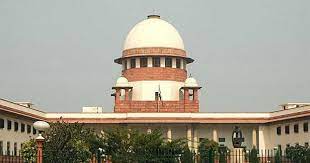
New Delhi: In a significant ruling, the Supreme Court of India declared domicile-based reservations for postgraduate medical admissions as unconstitutional. The Court ruled that such a system violates Article 14 of the Constitution, which ensures equality before the law. The bench, comprising Justices Hrishikesh Roy, Sudhanshu Dhulia, and SVN Bhatti, noted that residence-based reservations in PG medical courses were “clearly violative” of constitutional principles.
The ruling clarified that state quota seats in PG medical courses should be filled strictly based on merit in the NEET exam, with no provision for domicile-based reservations.
Clarification on Existing Admissions and Future Impact
The Court, however, made it clear that this judgment will not affect the domicile reservations that have already been granted. Students currently enrolled in PG medical courses under this category, as well as those who have already graduated, will not be impacted by the decision. Referring to previous cases such as Pradeep Jain and Saurabh Chandra, the bench reinforced the idea that residence-based reservations for MBBS could be acceptable to some extent, but for PG medical courses, which require specialized doctors, such reservations are unconstitutional and a violation of Article 14.
The Court emphasized that all Indian citizens are domiciles of India and have the right to live, work, and seek education anywhere in the country. Therefore, the Constitution allows residents of any state to seek admission in educational institutions across India, including medical colleges, but such reservations based on domicile can only be extended to a certain degree in undergraduate courses like MBBS.


